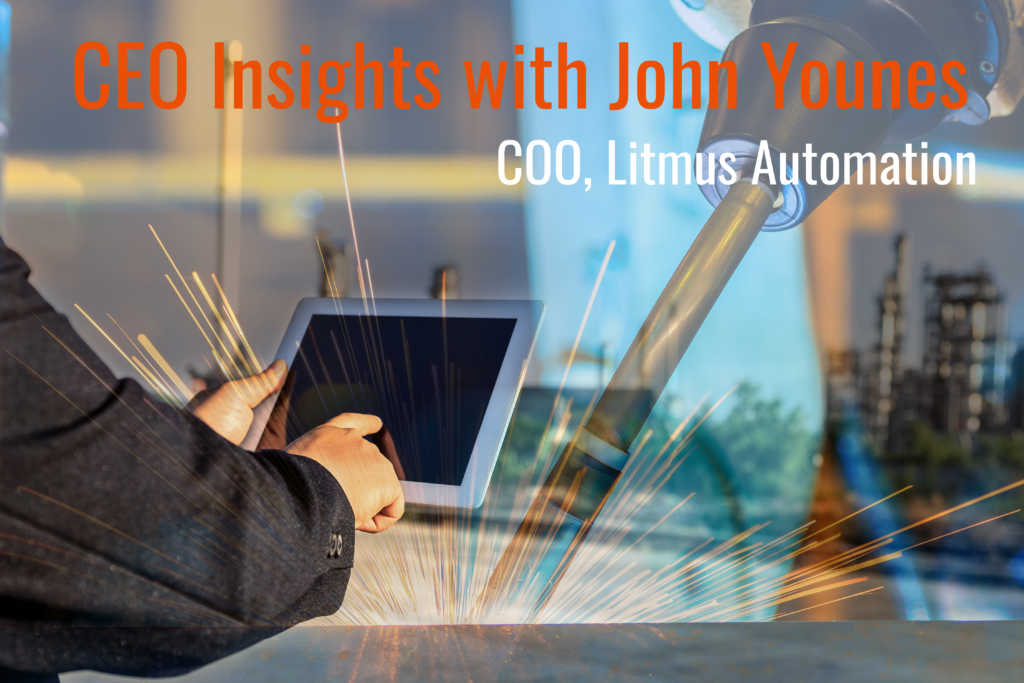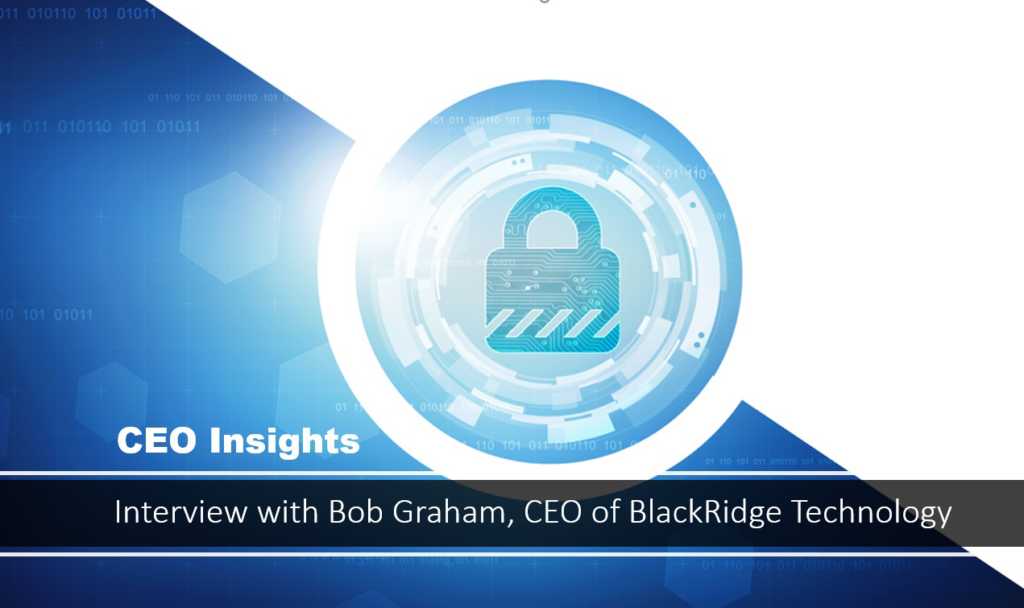The manufacturing industry has a long history of automated machines and systems. IIoT is part of larger digital transformation efforts to help connect critical assets, extract data, and improve factory operations. IIoT still raises a lot of questions and here are a few that we asked the COO of Litmus Automation, John Younes.
Carolina Rudinschi: Deploying technology does not automatically generate economic value. Companies must link IoT deployments with specific business priorities. In the narrowest sense, companies seek to improve reliability, to optimize operations and in the end, companies try to explore new sources of revenue and competitive advantage that transform the business (creating new value). From your experience, what are the most immediate needs that manufacturers want to address when deploying an IIoT project?
John Younes: In my experience, clean, structured and real-time data is one of the most immediate needs manufacturers are looking to address. They have a great deal of data trapped inside of legacy devices and machines, and without normalized access to this data, advanced IIoT projects such as predictive maintenance or prescriptive analytics are difficult to achieve. The most successful manufacturers are implementing IIoT by starting with basic data collection and working to achieve complete asset visibility over all their machines and assets. Once they have this “clean data pipe”, it becomes easier to expand upon for multiple use cases but they can still see immediate benefit from having complete asset visibility.
Carolina Rudinschi: Where in the industrial sector do you see the most business opportunity for implementing IIoT solutions?
John Younes: I see manufacturing as one of the most prevalent industries ripe for implementing IIoT solutions. They have many different sites with critical assets spread across various disparate geographies, so they stand to gain a lot if they can centralize all the data and processes across their operations. Downtime is the biggest problem in manufacturing – I have seen a customer experience just an hour of downtime on a critical machine, which stopped their complete production run and cost them $30,000 in losses for every hour the machine was down. IIoT solutions can optimize uptime and solve these types of problems.
Oil and Gas is another industry dealing with many disparate, remote locations and production sites. Large Oil & Gas companies do not always have a strong network or internet connectivity available at remote locations, making edge computing one of the key drivers for this industry.
Carolina Rudinschi: If manufacturing companies can understand the opportunities inherent in adopting IoT technologies, their future surely looks bright. What’s the best way, from your perspective, to help these companies to see the opportunities?
John Younes: At Litmus Automation we have been looking to help manufacturing companies see the opportunity by getting started on a small scale. Trying to achieve a complete IIoT project from day one is a daunting task. We tell our customers, “Industry 4.0 is a journey”, and simply getting started will allow them to take advantage of the opportunities that IIoT presents. We act as their “hands on” partner on this journey and help them scope out an initial small project they can start by connecting just a few machines to see the initial value. Once they have these machines connected and they see what kind of value they can get, it is far more appealing for them to continue at a larger scale.
The customer I mentioned earlier, who was experiencing huge losses from downtime, saw the great value that can come to manufacturing companies in IoT. First, we collected data in real-time from their Legacy machines with LoopEdge, normalized it and pushed it securely up to the LoopCloud platform. Next, a machine learning algorithm ran on top of the data to discover anomalies that indicated failures in the system. In the end, our LoopCloud and LoopEdge platforms enabled a predictive maintenance system that would alert the Plant Floor Manager up to 9 hours before an anomaly would occur in the system – saving time and money in the production process and optimizing maintenance schedules on their older machines.
Carolina Rudinschi: What’s the hardest thing to explain to a client when talking about IIoT implementation? Is the technology aspect or the fear to get disrupted?
John Younes: Generally, the technology behind building IIoT solutions that work is hard to communicate. Companies are becoming far more sophisticated in terms of their technology requirements, and at the same time, they are being bombarded by marketing from larger companies that claim to have a solution to their problem. However, those “solutions” are often more marketing hype than anything, which is one of the most difficult things to explain to a client. Those who have done their homework understand a complete product when they see one. Otherwise, it comes down to educating them on the requirements they need, which they may not even be aware of.
The fear of getting disrupted may not be completely real at this point as the early adopters are still the ones who are getting started with IIoT. In a couple of years when IIoT starts to catch up to the market, companies who haven’t gotten started will realize they are far behind their competitors.
Carolina Rudinschi: What should define a vendor that provides IIoT solutions to stand out from the crowd?
John Younes: The IIoT landscape is already crowded. In order to stand out, a vendor must be transparent and realistic about what they are lacking, while building a strong ecosystem around them to fill the gaps. The word ecosystem may seem overused, but no matter what they may claim, no single company can fill all the requirements and partners have to come together to provide end-to-end IIoT solutions.
At Litmus, we pride ourselves on providing an end-to-end product solution for Industrial IoT, but we still need partners for hardware components, sensors, machine learning, data science, implementation and consulting. We form these partnerships so that when customers need any of these aspects of the solution, we can bring partners in as needed. From a vendor technology perspective, a strong IIoT solution provider has the following: legacy device connectivity to a large number of PLCs and other industrial systems, the ability to normalize and process data at the edge, the ability to run applications at the Edge, integrations to 3rd party systems, and extensive management capabilities to scale and manage any solution, including device management, deployment management, logic management, firmware management, and more. Lastly, security is key. Security is often overlooked, but without having the proper security controls in place, there are many potential risks that present themselves which are killers of IoT projects by corporate IT and security teams.
John Younes is the Co-Founder & Chief Operating Officer at Litmus Automation. He is in charge of operations and growth for the company and draws on considerable experience working with start-ups and early stage companies. He has a Bachelors in Management from University of Western Ontario and a Masters in Management with specialization in Global Entrepreneurship from EM-Lyon.
is the Co-Founder & Chief Operating Officer at Litmus Automation. He is in charge of operations and growth for the company and draws on considerable experience working with start-ups and early stage companies. He has a Bachelors in Management from University of Western Ontario and a Masters in Management with specialization in Global Entrepreneurship from EM-Lyon.



